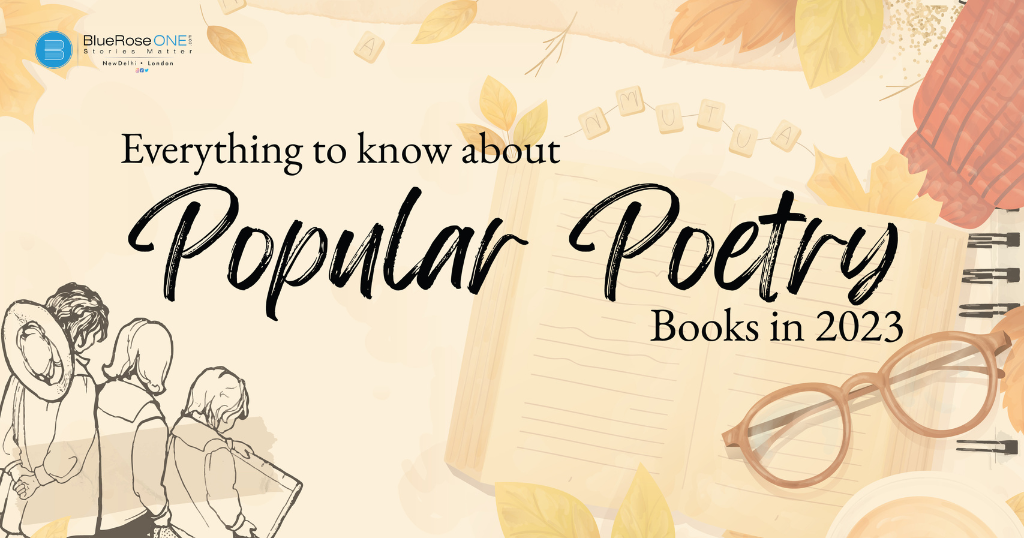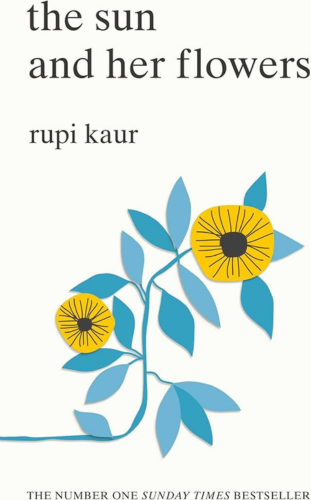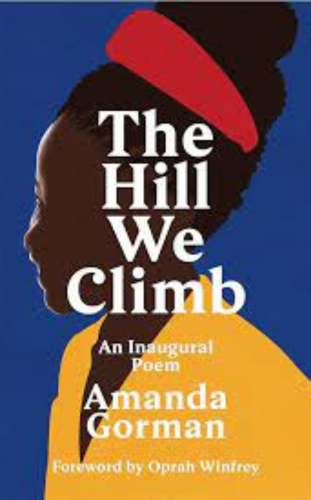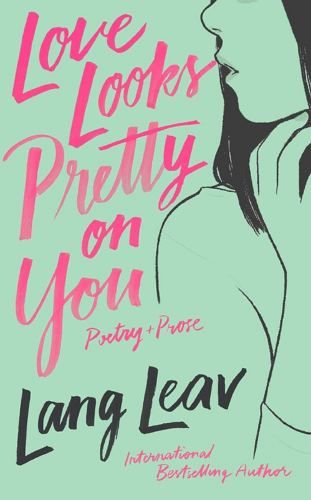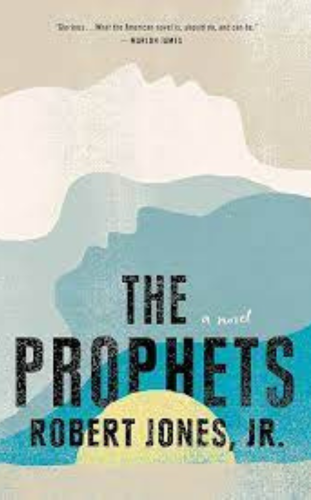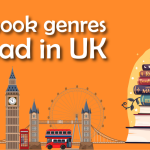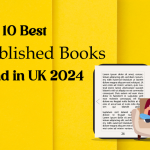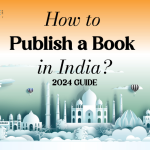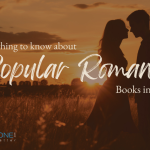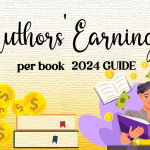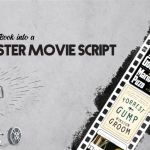In the vast landscape of literature, poetry has always held a unique place, offering readers a condensed and expressive form of storytelling. As we step into 2023, the world of poetry continues to evolve and captivate audiences, with a resurgence of interest in this timeless art form. This exploration will delve into the intricacies of popular poetry books in 2023, examining the trends, highlighting influential works, and shedding light on the diverse voices shaping the poetic landscape.
The Resurgence of Poetry:
Poetry, often regarded as the soul’s language, is experiencing a renaissance in 2023. Readers are turning to poetry for its ability to distil complex emotions into a few lines, providing solace and introspection in a fast-paced world. The resurgence of poetry signifies a collective yearning for depth and connection in an era dominated by brevity.
Diverse Voices and Themes:
One of the defining features of poetry in 2023 is the celebration of diverse voices and themes. Poets from various backgrounds and cultures are weaving narratives that reflect the richness of human experience. Themes such as identity, social justice, mental health, and environmental consciousness are prominent in contemporary poetry, fostering a deeper connection between poets and readers.
- Identity and Intersectionality: Poets are exploring the complexities of identity and intersectionality, delving into the intersections of race, gender, sexuality, and cultural heritage. Works like “Homie” by Danez Smith and “Citizen: An American Lyric” by Claudia Rankine exemplify the exploration of identity in nuanced and impactful ways.
- Social Justice and Activism: Poetry has become a powerful tool for social justice and activism. Poets like Warsan Shire (“Teaching My Mother How to Give Birth”) and Ocean Vuong (“Night Sky with Exit Wounds”) use their verses to address issues of injustice, inequality, and the resilience of marginalised communities.
- Nature and Environmentalism: A growing trend in contemporary poetry revolves around nature and environmentalism. Poets such as Mary Oliver (“Devotions”) and Ada Limón (“The Carrying”) draw inspiration from the natural world, reflecting on its beauty, fragility, and the urgent need for environmental stewardship.
- Mental Health and Well-Being: The intersection of poetry and mental health is a notable theme in 2023. Poets like Rupi Kaur (“Milk and Honey”) and Yrsa Daley-Ward (“The Terrible”) use their verses to navigate the complexities of emotions, healing, and the journey towards mental well-being.
You may also like: Is Kindle Direct Publishing right for Your Next Book?
Evolution of Poetic Forms:
The landscape of poetic forms is evolving, with contemporary poets experimenting with structures, styles, and multimedia elements. While traditional forms like sonnets and haikus persist, poets are increasingly drawn to free verse, spoken word, and visual poetry. The fusion of poetry with other art forms, such as illustrations, photography, and music, is creating a dynamic and immersive poetic experience.
- Spoken Word Poetry: The spoken word has gained prominence as poets engage with audiences through live performances, podcasts, and audio recordings. The rhythmic and emotive qualities of spoken word poetry enhance the impact of the spoken word, making it accessible to diverse audiences.
- Visual Poetry: Poets are incorporating visual elements into their work, creating a synthesis of language and art. Visual poetry challenges traditional boundaries, using typography, layout, and imagery to enhance the thematic resonance of the verses. Works like “The Lost Spells” by Robert Macfarlane and Jackie Morris exemplify the marriage of words and visuals.
- Digital Platforms and Poetry: The digital age has provided poets with new avenues for expression and dissemination. Social media platforms, especially Instagram and Twitter, serve as prolific spaces for poets to share their work, connect with readers, and build a global community. Hashtags like #PoetryCommunity and #InstaPoetry showcase the vibrant digital presence of contemporary poetry.
Challenges and Criticisms:
Despite its resurgence, poetry faces challenges and criticisms. Some critics argue that the accessibility of poetry on social media platforms leads to oversaturation and a dilution of quality. The brevity of modern attention spans is also cited as a challenge, with readers favouring shorter forms over extended poetic narratives. However, proponents argue that the digital era has democratised poetry, allowing diverse voices to flourish and reach wider audiences.
Poetry in Different Cultures:
You may also like: The Role of a Book Publisher: From Manuscript to Bestseller
What would be the Publishing process:
Publishing poetry requires a nuanced approach that aligns with the unique characteristics of the genre. Manuscripts should be polished and refined, paying attention to each word’s significance. Researching poetry-focused publishers and literary journals ensures that submissions are targeted to entities with a genuine appreciation for poetic expression. Crafting a captivating cover letter and adhering to submission guidelines are crucial steps in the submission process.
Self-publishing has become a viable option for poets, allowing them to retain creative control and reach audiences directly. Platforms like Amazon Kindle Direct Publishing (KDP) and independent publishers specialising in poetry offer avenues for self-published poets. Leveraging social media for self-promotion and engagement with the poetry community enhances visibility.
- Create Your Poetry Book: Writing your poetry book is similar to creating a one-of-a-kind work of art with words. It all starts with a rigorous process of editing and polishing each poem, a delicate dance that brings your lines to life. Consider working with a qualified poetry editor to ensure that your lines are memorable to readers and capture the core of your feelings and thoughts. Your work’s craftsmanship is evident not just in the words themselves but also in the arrangement, timing, and rhythm that combine to form a harmonic composition. Formatting is also important, with fonts, spacing, and presentation conforming to industry standards to give your poetry book a polished and professional appearance. This attention to detail lays the groundwork for a successful business.
- Research and Locate Publishers: In the enormous world of poetry publication, research serves as your compass. Investigate the distinct niches and preferences of various publishing houses, with an emphasis on those that specialise in poetry or have a history of supporting comparable genres. Tailor your contributions to each publisher’s individual culture, ensuring that your poetry finds a home where its intricacies are appreciated. Learn about submission rules, and keep in mind that each publishing business has its own unique set of preferences and needs. This deliberate method puts your poems for maximum awareness in the broad publication world.
- Proposals and query letters: Crafting engaging query letters and book proposals is an art form that unlocks the door to publishers’ hearts. Your poetry, which is rich in cultural depth and thematic relevance, requires articulate expression in these materials. Consider them ambassadors, bringing publishers into the enchanted realm you’ve created via poetry. Customise each query for a single publication, demonstrating your understanding of their needs and elegantly integrating your lyrical story with their catalog. The inquiry is more than just a synopsis; it’s an enticing invitation to publishers to go on the transforming trip that your poetry provides. The book proposal functions as a literary manifesto, defining the grandeur of your poetic universe and immersing publishers in the theme currents, character complexities, and cultural subtleties that make your work unique.
- Selecting the Right Literary Agent: Choosing a literary agent is a pivotal decision in your poetry book’s journey to readers. Literary agents are invaluable guides with industry knowledge and connections. Seek agents experienced in representing poetry or similar genres, enhancing your chances of navigating the nuances of the publishing landscape. Agents champion your work, pitching it to publishers and negotiating terms. Their insights into market trends, editorial preferences, and contractual intricacies significantly enhance your chances of securing a favourable publishing deal. Aligning with a literary agent establishes a symbiotic relationship, ensuring your poetic vision resonates with the practicalities of the publishing world.
- Exploring Self-Publishing: In the contemporary era, self-publishing empowers poets with control and accessibility. Explore reputable platforms tailored to poetry, like Amazon Kindle Direct Publishing (KDP). While embracing independence, prioritise professional editing services for your manuscript. A compelling cover design is essential for self-published works, visually communicating the essence of your poetry. Self-publishing doesn’t mean compromising on professionalism; meticulous attention to quality ensures your poetry stands out in the competitive market.
- Embracing the Digital Realm: Digital publishing opens doors to a vast, global readership for poets. E-books and audiobooks offer accessibility, tapping into the preferences of modern readers. Platforms like Amazon KDP and Audible provide avenues to reach diverse audiences. Prioritise professional formatting for a seamless reading or listening experience. Embrace the capabilities of the digital realm to amplify your poetry’s visibility and resonance in contemporary literature.
- Designing Your Poetry Book Cover: The book cover is the visual ambassador for your poetic world, a critical aspect of the publishing process. Whether collaborating with a traditional publisher’s design team or hiring an independent cover artist for self-published works, invest time and resources in creating a captivating cover. Aesthetics, imagery, and typography play pivotal roles in attracting readers. A well-designed cover acts as a beckoning portal, inviting readers to immerse themselves in the enchanting realms you’ve crafted. Prioritise a cover that stands out amidst competitors while aligning with genre expectations.
- Copyright and Intellectual Property Protection: Securing copyright protection is crucial to safeguarding your poetry book as intellectual property. This legal measure provides exclusive rights, preventing unauthorised use. In the realm of poetry, where originality is paramount, copyright ensures control over your creative work. Register your poetry book with the relevant copyright office, offering a legal foundation for asserting your rights. Prioritise copyright and intellectual property protection to preserve the unique tapestry of your poetic world under your authorial guardianship.
- Engaging with Your Readers: Building an engaging author platform is pivotal for poets connecting with their audience. Leverage social media platforms, such as Instagram, Twitter, and Facebook, to create a digital space dedicated to your poetic world. Share captivating visuals, snippets of your creative process, and behind-the-scenes anecdotes. Offering insights into your poetry’s inspiration invites readers to immerse themselves deeper into your narrative. Establishing a personal website or blog adds authenticity, providing a central hub for readers to explore your poetic universe. Regularly interact with your audience, responding to comments and fostering a sense of community around your work. This engagement transforms readers into loyal fans who are not just consumers but active participants in the journey of your poetry.
- Crafting a Strategic Marketing Plan: Crafting a strategic marketing plan is essential for propelling your poetry book into the literary spotlight. Social media campaigns use visually striking graphics, engaging captions, and targeted hashtags to amplify your reach. Virtual book launches offer readers an immersive experience in the world you’ve created. Author interviews, whether on podcasts or literary platforms, humanise your narrative, making it more relatable to potential readers. Collaborating with influencers in the poetry or literary niche can significantly broaden your audience. Encouraging early reviews from beta readers not only boosts credibility but also generates anticipation. Leverage email newsletters to keep your audience informed about upcoming releases, events, and exclusive content. Create a multi-faceted marketing strategy tapping into various channels for maximum visibility and resonance for your poetry.
- Choosing Distribution Channels: Choosing the right distribution channels is a strategic decision influencing the accessibility and visibility of your poetry book. Traditional brick-and-mortar bookstores offer a tangible presence, allowing readers to discover your book organically. Online retailers, such as Amazon, Barnes & Noble, or independent bookstores with e-commerce platforms, cater to the digital age, reaching a global audience. Opting for a combination of both ensures a comprehensive approach. Consider formats—physical copies, e-books, and audiobooks—based on reader preferences. Tailor your distribution plan to align with your target audience, ensuring your poetry book is available where they are most likely to seek it. Collaborate with book clubs, libraries, and literary events to further extend your book’s reach. Strive for a balance, maximising both visibility and accessibility while catering to the diverse reading preferences of your audience.
- Patience and Perseverance in Publishing: The publishing journey, akin to an epic quest in poetic tales, demands patience and perseverance. Anticipation often accompanies moments of submission and waiting for responses from publishers or agents. Rejections, though disheartening, should be viewed as stepping stones towards the right opportunity rather than roadblocks. Each rejection holds valuable lessons, refining your approach and strengthening your poetic narrative. Perseverance becomes your companion as you navigate the challenges inherent in the literary world. Embrace the ebb and flow of the journey, knowing that resilience in the face of setbacks is a hallmark of successful poets. Your poetry book is a creation born of dedication and passion—qualities that, when coupled with patience, pave the way for enduring success.
- Embrace Feedback and Adapt: Feedback, whether from readers, reviewers, or industry professionals, is a compass guiding your poetry book towards refinement and resonance. Embrace constructive criticism as a tool for growth, recognising that external perspectives enrich your creative process. Adaptability is a hallmark of successful poets; it allows your work to evolve, ensuring it remains relevant and impactful. Engage with reviews—both positive and constructive—acknowledging and appreciating the perspectives of your readers. Consider feedback not as a judgement of your work but as a collaborative effort to enhance its depth and appeal. Adapting your narrative based on insights garnered from the readership ensures that your poetry book continues to captivate and inspire. In this iterative process, your willingness to embrace feedback becomes a testament to your commitment to delivering a compelling and resonant poetic narrative.
You may also like: Book Writing Tools That Actually Make a Difference
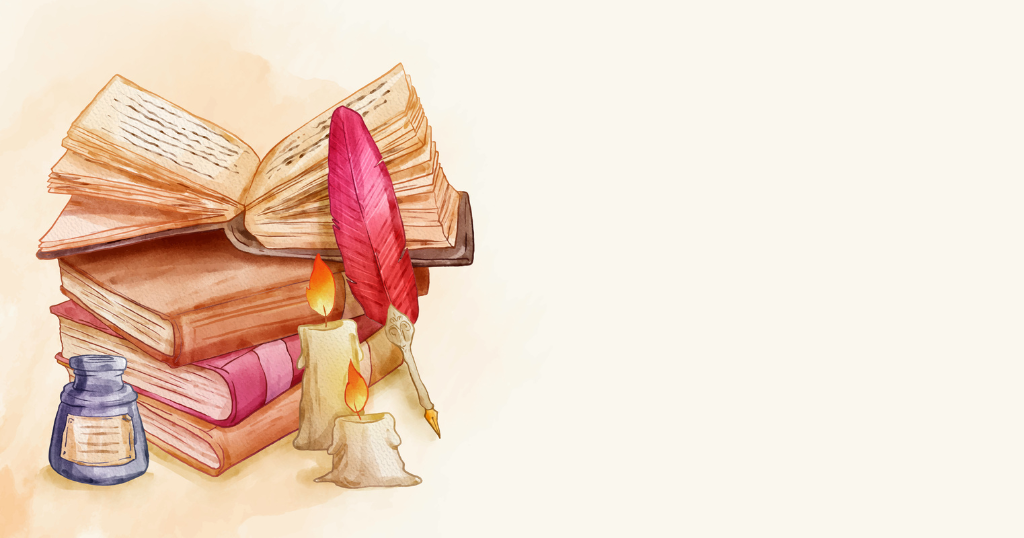
Influential Works in Short Stories & Poetries:
Here’s a list of top Influential Short Stories & Poetry Books of 2023 to Read:
"The Sun and Her Flowers" by Rupi Kaur
Rupi Kaur’s powerful and evocative poetry collection, “The Sun and Her Flowers,” explores themes of love, growth, and resilience. Known for her raw and accessible style, Kaur’s work continues to resonate with readers, making poetry a mainstream literary experience.
"A Promised Land" by Barack Obama
In a departure from traditional poetry collections, Barack Obama’s “A Promised Land” includes reflective and lyrical passages that offer a unique blend of memoir and poetic expression. The former president’s eloquence extends beyond political discourse, revealing a poetic dimension to his storytelling.
"The Hill We Climb" by Amanda Gorman
Amanda Gorman captured the world’s attention with her inaugural poem, “The Hill We Climb.” Her eloquent verses, addressing themes of unity and hope, not only marked a historic moment but also elevated the role of poetry in contemporary discourse.
"Love Looks Pretty on You" by Lang Leav
Lang Leav, a prominent figure in modern poetry, continues to enchant readers with her latest collection, “Love Looks Pretty on You.” Through delicate and introspective verses, Leav explores the facets of love, self-discovery, and the beauty found in life’s ordinary moments.
"The Prophets" by Robert Jones Jr
Moving beyond traditional poetry, “The Prophets” by Robert Jones Jr. blends poetic prose with narrative storytelling. This groundbreaking work explores love and liberation within the context of slavery, challenging the boundaries of poetic expression.
Anthologies and Literary Magazines:
Anthologies and literary magazines play a crucial role in showcasing the diversity of poetic voices. Submitting poems to reputable literary magazines provides exposure and establishes credibility for emerging poets. Anthologies, curated around specific themes, offer poets the chance to contribute to collective explorations of shared experiences.
Embracing New Poetic Voices:
The evolving landscape of poetry in 2023 invites readers to embrace new poetic voices and perspectives. Emerging poets, often found on social media platforms, contribute fresh insights and styles to the poetic conversation. Engaging with the works of poets who challenge traditional norms expands the horizons of poetic appreciation.
Poetry Readings and Events:
Attending poetry readings, book launches, and literary events remains a timeless way to connect with poets and fellow poetry enthusiasts. In-person and virtual events provide opportunities to witness poets perform their work, offering a deeper understanding of the intended rhythms and emotions. Participating in open mic sessions fosters a sense of community and encourages dialogue between poets and their audience.
The Role of Poetry in Society:
Poetry has a profound impact on society, serving as a mirror that reflects the collective consciousness. Poets often act as witnesses to historical events, providing a nuanced perspective that transcends traditional narratives. In times of social change, poetry becomes a catalyst for reflection, empathy, and dialogue.
Future Trends in Poetry:
Looking ahead, several trends are poised to shape the future of poetry. The continued integration of poetry into digital platforms, the exploration of new poetic forms, and the emphasis on diverse voices are likely to define the poetic landscape. The intersection of poetry with other art forms, such as film and music, will create immersive experiences that resonate with a broader audience.
Read: Everything to Know about Travel Fiction: Meaning, Definition & more.
In 2023, poetry stands at the crossroads of tradition and innovation, offering readers a diverse and vibrant array of voices and themes. As readers, poets, and literary enthusiasts, we have the privilege of witnessing the evolution of poetry in real-time. The resurgence of interest in poetry reflects a collective yearning for introspection, empathy, and connection, making this art form an enduring and vital part of the human experience. Whether exploring ancient themes or breaking new ground, poetry continues to weave the threads of language into the tapestry of our shared consciousness.

